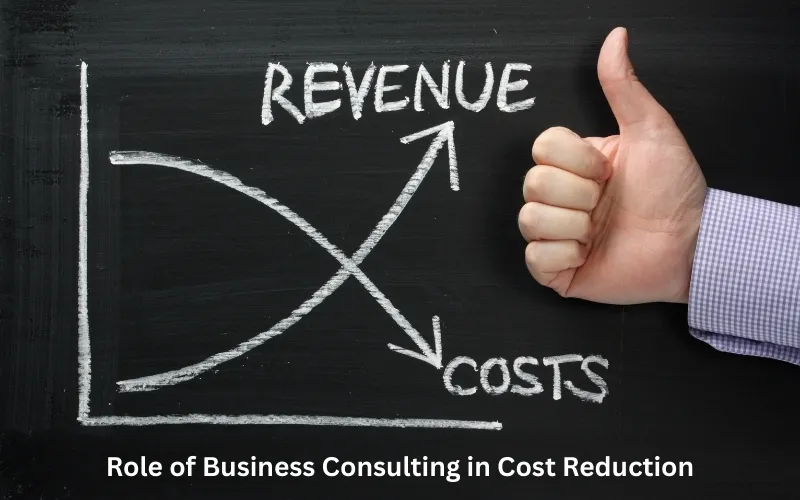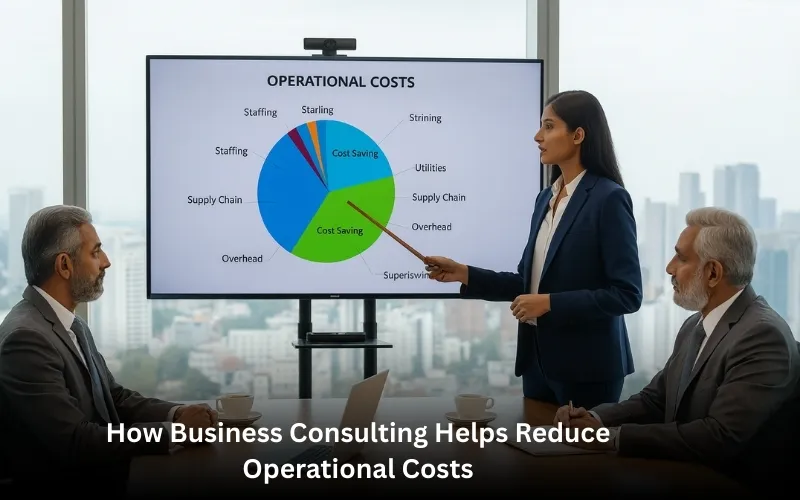The Challenge: Rising Expenses & Low Profit Margins
In today’s competitive market, businesses face one common challenge – rising operational expenses coupled with shrinking profit margins. From increasing overheads to inefficiencies in internal processes, these costs eat away at profitability. Many leaders ask: “How do we reduce operational costs without compromising growth?”
The answer lies in business consulting for cost reduction. Consultants bring an outside perspective, structured methodology, and proven frameworks to help companies identify inefficiencies, streamline operations, and implement cost-saving strategies for companies that drive sustainable growth.
Why Reducing Operational Costs is Crucial for Businesses
Operational costs cover everything from rent, salaries, and utilities to production, logistics, and administrative expenses. If these are not managed properly, even companies with strong revenue can struggle with profitability.
Here’s why reducing operational costs is critical:
- Higher Profit Margins: Cost savings directly boost net income.
- Improved Cash Flow: Reduced expenses free up capital for reinvestment.
- Stronger Competitiveness: Leaner businesses can offer competitive pricing without sacrificing quality.
- Long-Term Sustainability: Businesses that manage costs wisely are better prepared for market uncertainties.
Common Areas Where Costs Escalate
Before fixing inefficiencies, it’s important to know where costs usually spiral out of control:
- Inefficient Processes: Manual or outdated systems increase time and error rates.
- Overhead Costs: Rent, utilities, and administrative costs often go unchecked.
- Poor Resource Allocation: Wastage in manpower, materials, or technology.
- Lack of Automation: Tasks that could be automated but rely heavily on manual labor.
- Supply Chain Inefficiencies: Delays, mismanagement, or vendor issues add hidden costs.
Identifying these areas is the first step toward business process optimization and operational efficiency improvement.

Role of Business Consulting in Cost Reduction
This is where business consulting proves its value. Unlike internal teams, who may be too close to the problem, consultants provide an unbiased, data-driven approach. They analyze processes, compare industry benchmarks, and design customized lean management strategies.
The role of consultants includes:
- Auditing existing processes to highlight inefficiencies.
- Redesigning workflows for maximum efficiency.
- Introducing cost-effective technologies to streamline business operations.
- Developing strategic roadmaps for sustainable savings.
Key Consulting Strategies to Reduce Operational Costs
Consultants use proven methodologies to deliver results. Some effective cost-saving strategies for companies include:
- Business Process Optimization
Streamlining redundant steps, automating repetitive tasks, and eliminating waste. - Operational Efficiency Improvement
Introducing technology tools (ERP systems, CRM platforms) to boost productivity. - Overhead Cost Reduction
Reviewing office space, vendor contracts, and energy usage to cut unnecessary expenses. - Lean Management Strategies
Implementing lean principles to reduce waste, improve workflow, and enhance value delivery. - Supply Chain Optimization
Negotiating better vendor deals, reducing delays, and improving logistics.

How Consultants Help Reduce Costs
Still wondering how consultants help reduce costs in practical terms? Here are some real-world ways:
- Data-Driven Decision Making: Consultants use analytics to highlight hidden cost drivers.
- Technology Implementation: Recommending and implementing digital tools that reduce manpower costs.
- Change Management: Guiding leadership and employees through cultural or operational shifts.
- Benchmarking: Comparing your business practices with industry leaders to identify savings opportunities.
- Continuous Monitoring: Setting up systems to track costs and maintain efficiency long-term.
In short, business consulting for cost reduction is not just about slashing budgets-it’s about making smarter, long-lasting changes.
Benefits Beyond Cost Reduction
While saving money is the main goal, consultants deliver additional advantages:
- Increased Productivity: Optimized processes mean employees work smarter, not harder.
- Employee Satisfaction: Reduced inefficiencies free employees from repetitive tasks, improving morale.
- Customer Satisfaction: Faster delivery and improved service quality enhance the client experience.
- Scalability: Efficient systems make it easier to expand operations without proportional cost increases.
Thus, streamlined business operations not only reduce costs but also create a growth-ready organization.
Conclusion: Cost Efficiency is Business Growth
Reducing operational costs is not about cutting corners – it’s about building smarter systems. With expert guidance from business consultants, organizations can achieve business process optimization, operational efficiency improvement, overhead cost reduction, and lean management strategies that ensure sustainable growth.
If your business is struggling with rising expenses, it’s time to explore business consulting for cost reduction. Let experts help you uncover inefficiencies, implement cost-saving strategies, and build a future-ready enterprise.





Comments are closed